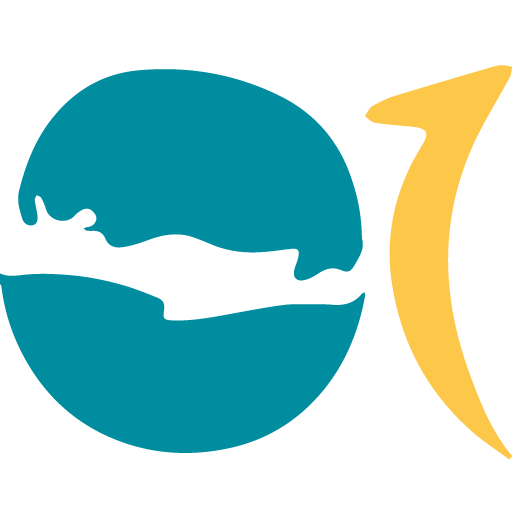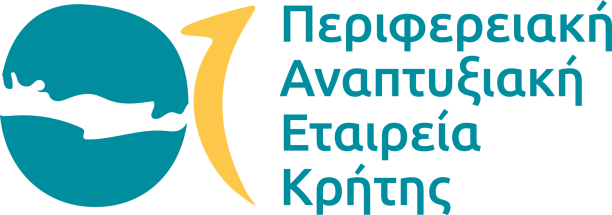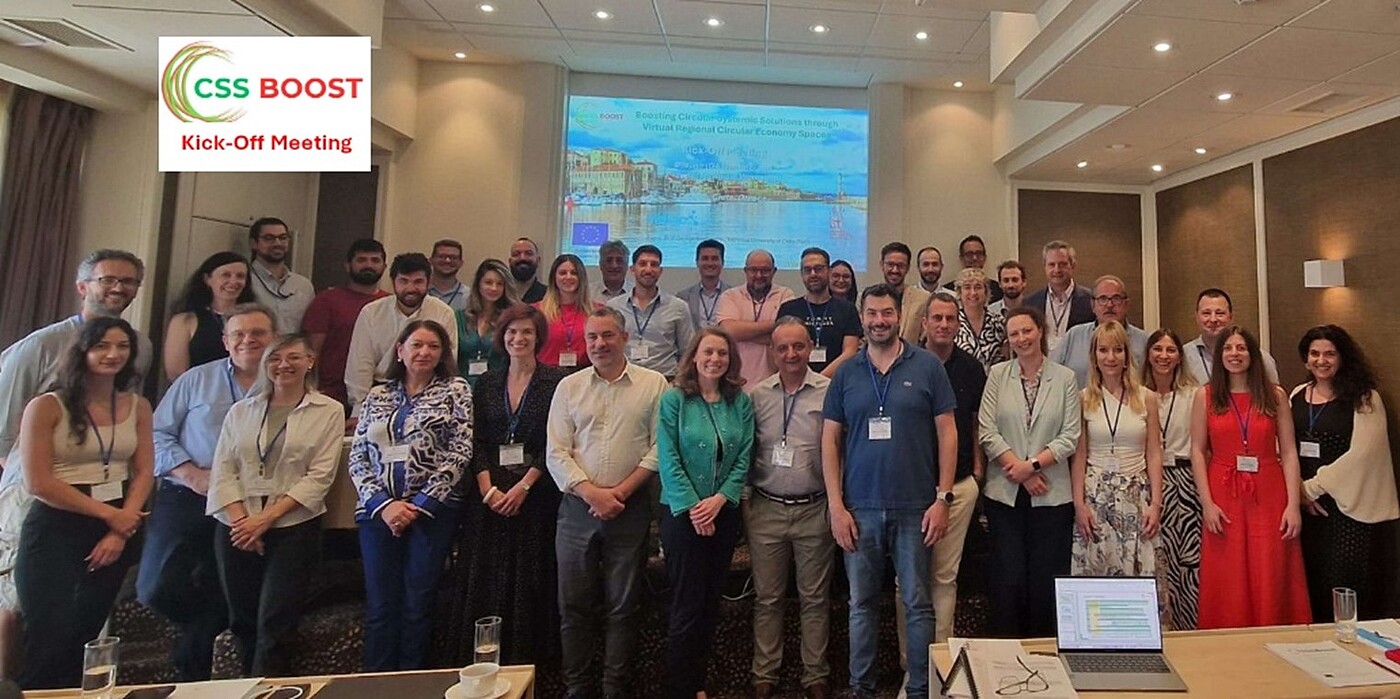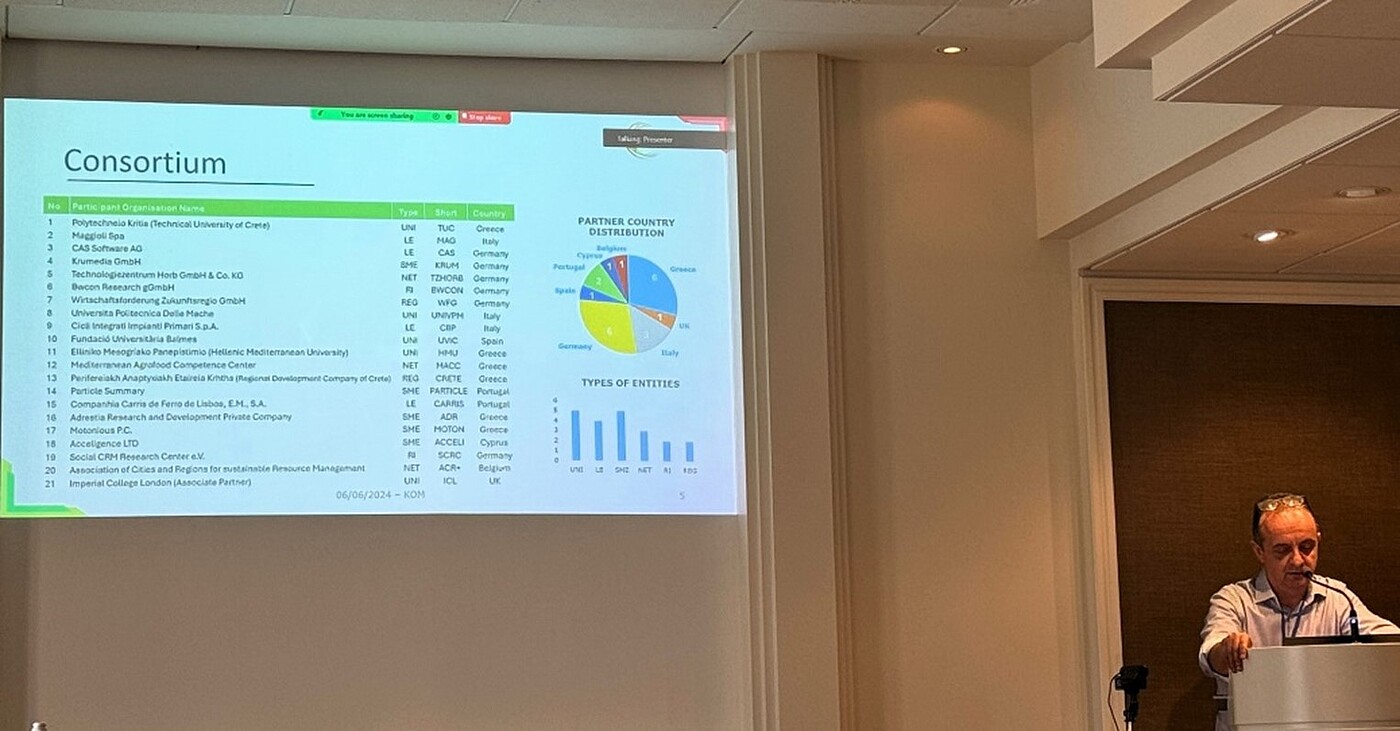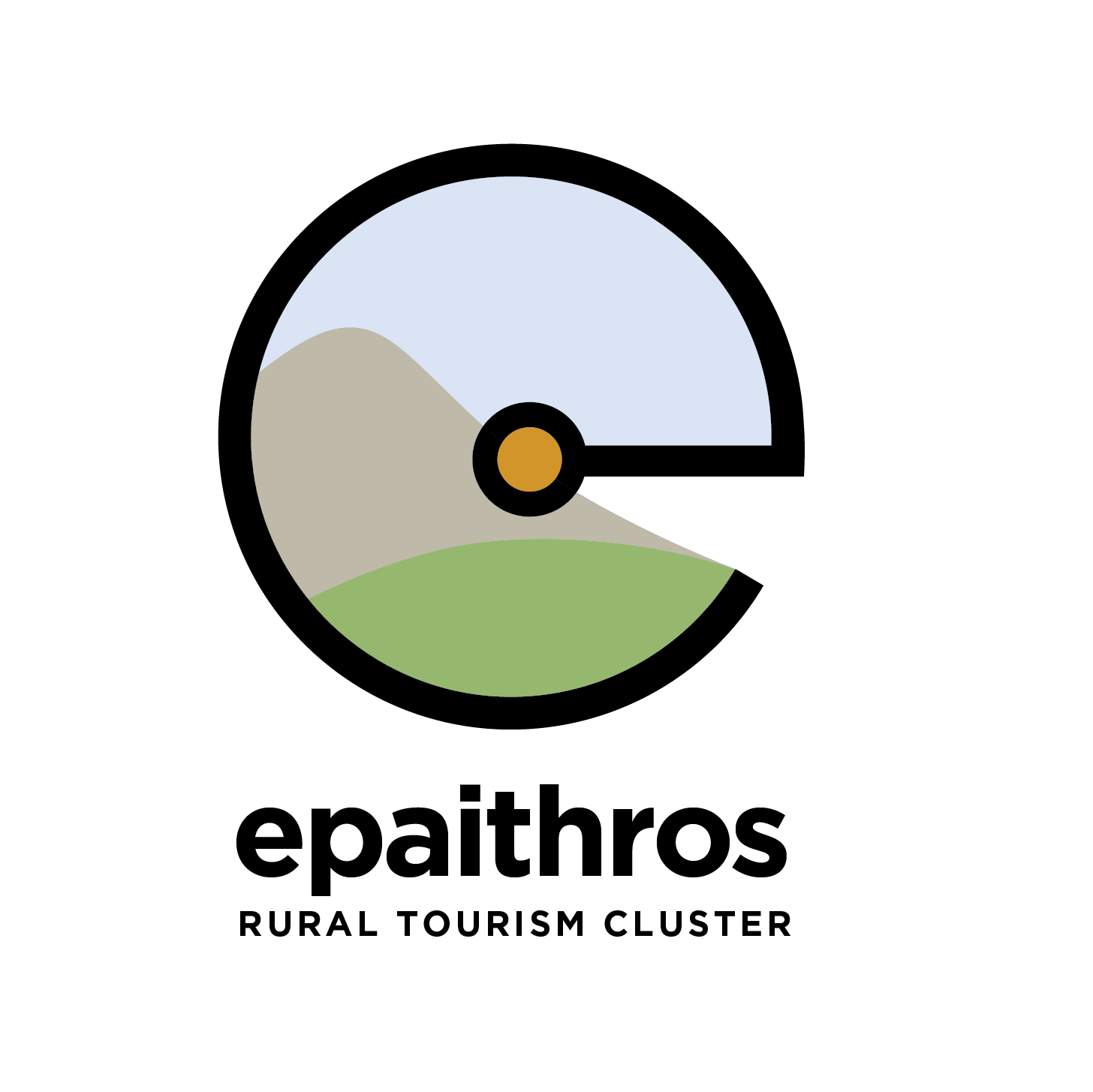The kick-off meeting of the new project by the Technical University of Crete CSSBoost (Boosting Circular Systemic Solutions through Virtual Regional Circular Economy Spaces) was successfully held on Thursday, June 6, 2024. The project is funded by the European Commission under the Horizon Europe Framework Programme, with the Technical University of Crete as the lead partner. The project coordinator is Associate Professor Georgios Arampatzis, head of the research group indigo of the School of Production Engineering & Management.
Project Objective and Goal
CSSBoost implements the vision of the European Circular Cities and Regions Initiative (CCRI), applying a series of innovations based on the Triple Transition (digital, environmental, social). The main goals of the project are (a) the creation of Circular Systemic Solutions (CSS), i.e., circular actions at urban or regional scale that combine multiple collaborative value chains, and (b) the enhancement of these solutions through cutting-edge digital technologies, while adopting a more human-centered and socio-centered approach in the implementation of these new technologies, taking into account competitiveness in changing markets, Green Development, and Climate Change adaptation.
Pilot Circular Systemic Solutions
Within the CSSBoost framework, the following five flagship Circular Systemic Solutions are being implemented in European cities, regions, or even groups of regions:
1) In the Region of Crete, focusing on value chains related to the utilization of by-products from agriculture, livestock farming, and food processing.
2) In the Marche region of Italy, focusing on water reuse and nutrient recovery.
3) In the Northern Black Forest region of Germany, involving circular chains related to the recycling of conventional plastics and bioplastics.
4) In the city of Lisbon, focusing on the repurposing of public transport vehicles at the end of their life cycle.
5) Integrates the four aforementioned value chains and explores their environment as a bi-regional, multinational chain coordinated at the European level. Its aim is to foster collaboration and exchange of know-how among the different regions to achieve common sustainability and circular economy goals.
Project Partners
The project includes 21 partners – Universities, Research Centers, Industrial partners, and Organizations from 8 countries (Greece, Italy, Spain, Cyprus, Belgium, Germany, Portugal, United Kingdom) – with a total budget of €11,876,438. From Crete, 2 universities are participating (Technical University of Crete and Hellenic Mediterranean University), the Region of Crete through the Regional Development Company of Crete, the Mediterranean Agrifood Competence Center, and 2 companies (Adrestia Research and Development Private Company and Motonious P.C.). The consortium is completed by the following partners: Imperial College London, Maggioli Spa, CAS Software AG, Krumedia GmbH, Technologiezentrum Horb GmbH & Co. KG, Bwcon Research gGmbH, Wirtschaftsforderung Zukunftsregio GmbH, Universita Politecnica Delle Marche, Cicli Integrati Impianti Primari S.p.A., Fundació Universitària Balmes, Particle Summary, Companhia Carris de Ferro de Lisboa, E.M., S.A., Acceligence LTD, Social CRM Research Center e.V., Association of Cities and Regions for sustainable Resource management.
Links:
- LinkedIn: https://www.linkedin.com/company/cssboost/
- Cordis page: https://cordis.europa.eu/project/id/101135275
- European Research Executive Agency (REA) Grant Agreement: https://panetaik.gr/wp-content/uploads/2025/03/Grant-Agreement-GAP-101135275_signed.pdf
